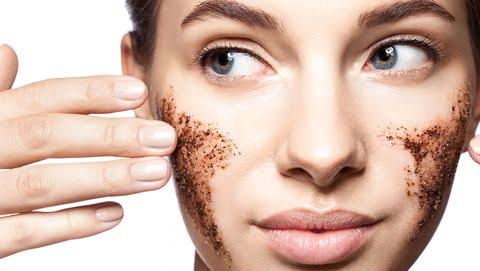8 Things You Need To Know Before Using Vitamin C On Your Skin

You may have noticed bloggers talking about a magical potion called Vitamin C and how it has changed their skincare game. From brightening up dull skin and reducing sun spots, Vitamin C is a game-changer for your skin. However, the type of Vitamin C serum you choose, how you use it, and how you store it all play an important role in the results that you will see on your skin.
Why is vitamin C so important?
Vitamin C is used to target dullness, uneven skin tone, acne scars, and texture. It is an essential part of skin health as it is an antioxidant and is critical for collagen synthesis. Underneath the layer of the skin, vitamin C decreases dark spots formed from UV radiation and helps heal wounds. It also decreases the effects of free radicals present in the environment that eventually damage the skin, leading to premature signs of aging and increasing your risk for skin cancer.
However, there are a couple of things you need to know before using any kind of vitamin C product on your face-
1. Choose the correct concentration
Identifying the correct concentration of vitamin C for your skin type is essential to how effective it may be. In general, they range from below 5% all the way up to 30%- depending on what your skin needs. Those with dry or sensitive skin are advised to stick to lower concentrations to avoid irritation of the skin. For those with normal or oily skin, L-ascorbic acid is the most potent form of vitamin C,
2. Use vitamin C products in the morning
While vitamin C serums can surely be used in the evening to fight post-sun damage, experts say that you reap the most benefit from using vitamin C in your morning routine. Since it protects your skin from free radicals, it may help prevent damage to your skin during the day when UV radiation is at its peak. However, since vitamin C becomes less effective when exposed to direct sunlight, it is important to let it absorb before stepping out into the sun.
3. Layer it under SPF
While vitamin C does not make the skin more vulnerable to sunburn, the most potent forms of vitamin C are vulnerable to light exposure. When layered underneath a broad-spectrum sunscreen, vitamin C protects the skin even further. It works as a safety net that minimizes free radical damage that can occur from UV light penetration, despite our best efforts to slap on sunscreen.
4. Don't mix vitamin C with other ingredients
While vitamin C is a safe product to use, it may sting a little bit for those who have sensitive skin, or for those who use it in the same routine as exfoliating scrubs or acids. The one ingredient, however, that vitamin C should never be used with is benzoyl peroxide. This can oxidize with vitamin C and make it less effective. Hence, it is recommended to use vitamin C products in the morning and benzoyl peroxide in the evenings, or using them on separate days.
5. Think twice before using vitamin C with retinol
Layering vitamin C with retinol- another potent ingredient- increases skin irritation and sensitivity, reducing the effectiveness of the products. Since they both have similar functions for the skin, you may alternate them between your AM and PM routines.
6. Store vitamin C products correctly
When exposed to air and light, the pure form of vitamin C which is Ascorbic acid may oxidize, making it less stable and less effective. Hence, in order to ensure that vitamin C is stabilized, it must be kept in airtight, opaque or amber-colored bottles. It should also ideally have an airless pump instead of a dropper bottle or a tub so that it doesn't have to be opened completely for every use.
7. Notice its color before use
Vitamin C should be colorless or should have a very light straw color. If it oxidizes, it will turn into a shade of yellow or brown that you are not likely to miss. Oxidized vitamin C will not only be less effective, but it may also cause a slight yellow discoloration of the skin. Hence, it is best to toss the product out if its color becomes dark or cloudy.
8. Experiment
While vitamin C serums are the most common, you don't have to limit yourself! If you would prefer not adding an extra step in your skincare regimen, you can also get your daily dose of vitamin C in cleansers, moisturizers, exfoliants, and sunscreens!




Comments